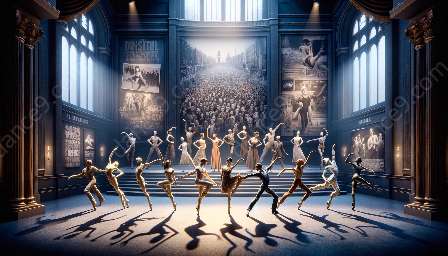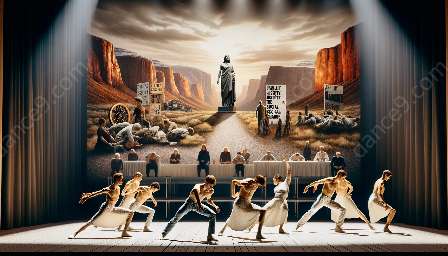Contemporary dance is a dynamic art form that often relies on engaging and emotionally charged music to enhance its performance. The selection of music for contemporary dance routines is an essential aspect of the choreography process, influencing the overall mood and audience experience. However, the process of choosing music for contemporary dance raises ethical considerations that must be carefully evaluated to ensure a respectful and meaningful connection between the movement and the music.
Impact of Music
The relationship between music and contemporary dance is an integral part of the creative process. Music often provides the foundation for movement, inspiring choreographers and dancers, setting the pace and tone of the performance. The impact of music on contemporary dance can be profound, as it can evoke deep emotional responses from both performers and the audience. The choice of music can enhance the storytelling aspect of the performance and contribute to the overall artistic expression.
Respect for Cultural Sensitivities
When selecting music for contemporary dance, it is crucial to consider cultural sensitivities and the potential impact of the music on the audience. Cultural appropriation and misrepresentation are ethical concerns that should be addressed when choosing music, particularly when drawing from diverse cultural influences. Choreographers and dancers must ensure that the music they select is respectful of the cultural origins and traditions it represents, avoiding stereotypes and misinterpretations.
Intellectual Property and Copyright
Another ethical consideration in music selection for contemporary dance pertains to intellectual property and copyright issues. Choreographers and dance companies must obtain the necessary permissions and licenses when using copyrighted music in their performances. Respecting the rights of musicians and composers is essential, and the unauthorized use of music can lead to legal and ethical consequences.
Message and Impact
The lyrical content and overall message conveyed through the music chosen for contemporary dance should align with the intended thematic concepts of the performance. Choreographers must consider the implications of the music's message and the potential impact on the audience. Thoughtful consideration of the lyrics and themes within the music can enhance the storytelling and emotional depth of the dance piece while preserving ethical integrity.
Reflection of Values
The music selected for contemporary dance should reflect the values and principles of the choreographer, dancers, and the dance company. Ethical considerations demand that the music aligns with the artistic vision and ethical standards of all involved in the performance. The music should not compromise the integrity of the dance piece or contradict the values of the creators and performers.
Collaborative Decision-Making
In the context of contemporary dance, the ethical selection of music often involves collaborative decision-making among choreographers, composers, dancers, and other creative collaborators. Respectful dialogue and mutual understanding are essential in navigating the ethical considerations related to music selection. By engaging in open communication and valuing diverse perspectives, the collaborators can ensure that the music chosen resonates with the artistic vision and upholds ethical standards.
Conclusion
Exploring ethical considerations in music selection for contemporary dance reveals the complexity and significance of the choices made in the artistic process. Ensuring respect for cultural sensitivities, adherence to intellectual property rights, alignment with thematic concepts, reflection of values, and collaborative decision-making are essential elements in making ethical music selections. By conscientiously navigating these considerations, contemporary dance can continue to evolve as an ethically responsible and culturally sensitive art form, enhancing the connection between movement and music.




























